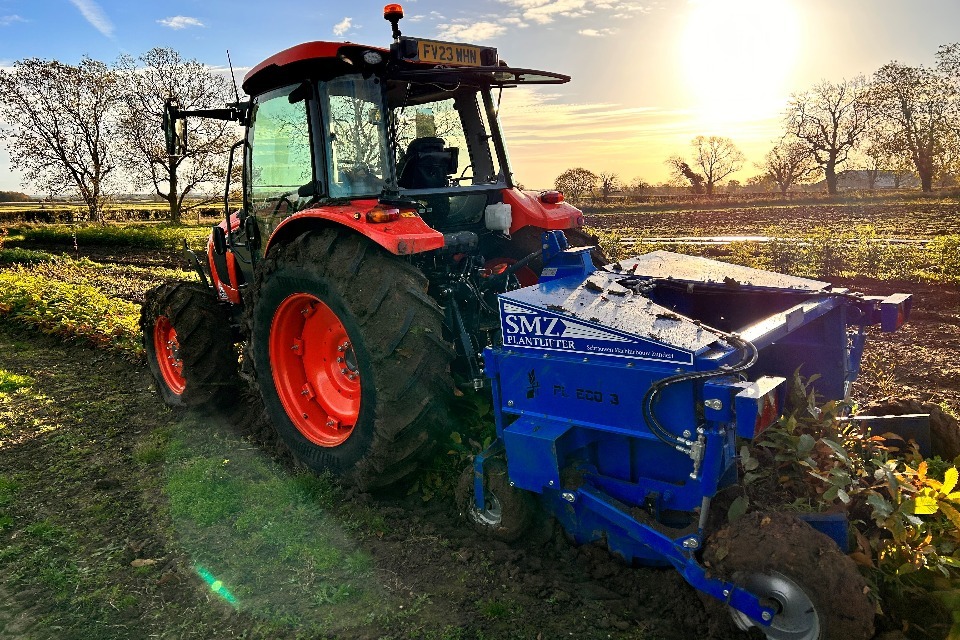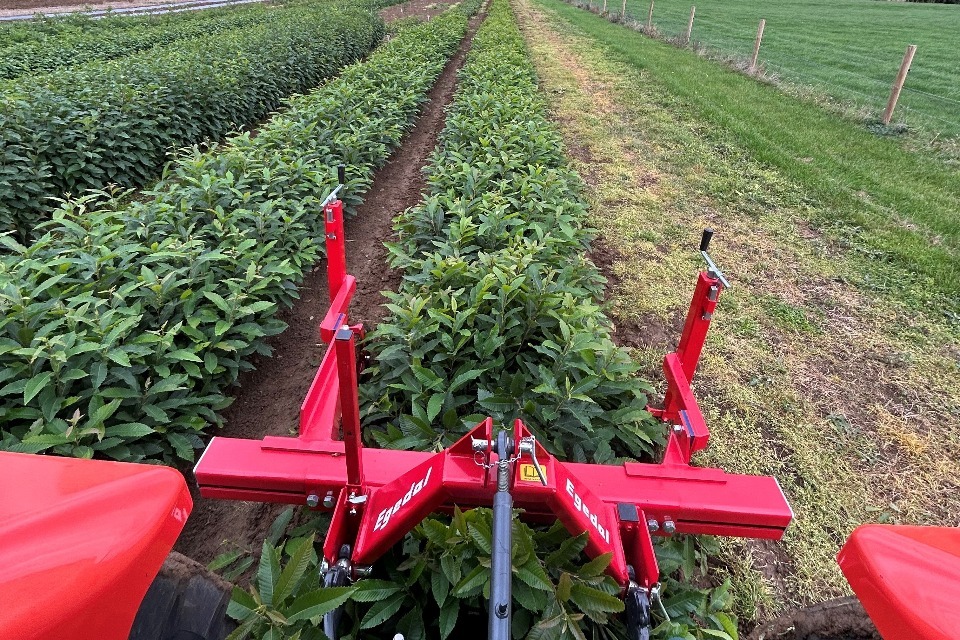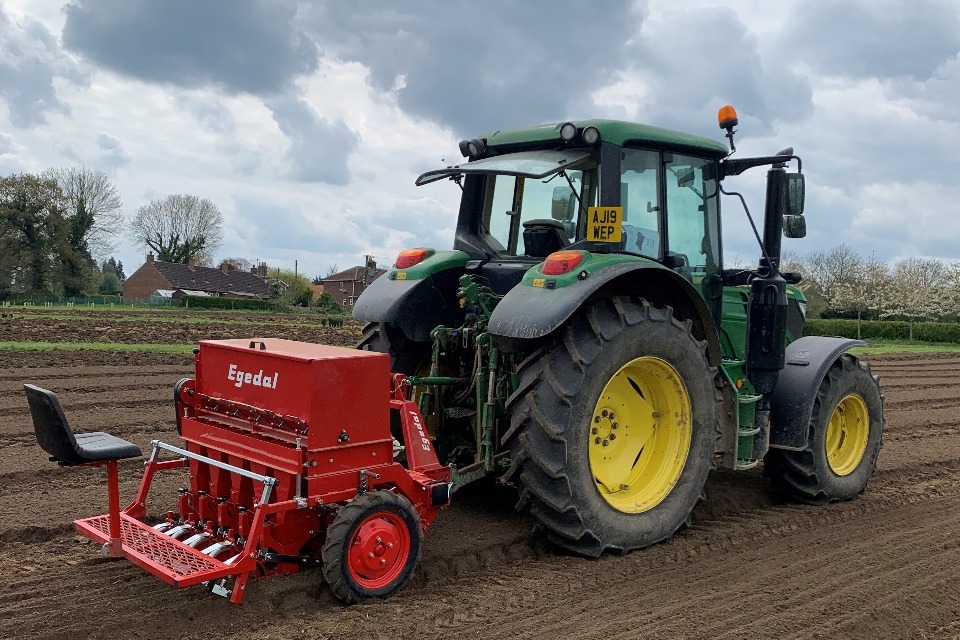Aveland Trees, Lincolnshire
Published 11 January 2024
Applies to England
Aveland Trees is a family run business led by father and son, Hugh and Joe Dorrington. It specialises in growing native trees and shrubs collected from seed and is based in the small village of Dunsby in Lincolnshire. The nursery is focused on growing particular species such as oaks, wild service, guelder rose, woodland hawthorn, wych elm, sweet chestnut, crab apple and dogwood.
In 2022, Aveland Trees decided to apply for the government’s Tree Production Capital Grant (TPCG). The grant provides funding to increase domestic production of tree seed and saplings, supporting investments in expansion, automation and mechanisation of facilities and equipment.

Tractor (c) Aveland Trees.
Increasing the production of native broadleaved seedlings
Aveland Trees received funding to mechanise the preparation, sowing, weeding and lifting of seed beds. Along with subsequent funding received in 2023, this would help the business to increase the production of native broadleaved seedlings, reducing the time required to carry out all operations and reducing the amount of labour required.
Joe Dorrington, Director, Aveland Trees:
We applied for the Tree Production Capital Grant to help mechanise and improve efficiency around the production of bare root seedlings. From the preparation of seed beds, to sowing then weeding and eventually lifting the trees, the whole process has now been mechanised thanks to the funding. Previously the majority of the work was done by extremely old machinery or by hand.
Equipment applied for included:
-
a bed former – this has helped Aveland Trees to produce improved seed beds. This allowed for better germination of seeds. Raised beds also drain more efficiently and are less prone to water logging after heavy downpours
-
a new drill – means that seed can be sown in only two days. In the past, seed had been sowed by hand which was a very labour intensive process that took up to two weeks. Seed can now be sown more accurately at the correct depth and rate
-
a mechanical interrow weeder – this has reduced dependency on chemicals for weed control. Weeding is also now less reliant on manual labour. In addition, the raised beds combined with the seed drill has allowed the weeder to work more efficiently
-
an undercutter – used for undercutting seed beds in the Autumn. This will allow for easier lifting
-
a bed lifter – to replace a 30 year old machine, lifting seedlings in a more efficient way
-
a 3-row planter – to replace a 1950’s cabbage planter which can now plant three times as many plants with the addition of only one extra worker
-
a new grading shed – Aveland Trees’ existing shed didn’t have the capacity to deal with the increased quantity of bare-root plants that have to be graded and packed by hand
-
a tractor – prior to funding, Aveland Trees had to hire and borrow a tractor from neighbouring farmers

Undercutter (c) Aveland Trees.
Joe Dorrington, Director, Aveland Trees:
With uncertainties around the weather, the opportunities for seed bed preparation, sowing and lifting had become increasingly limited. Every year the weather provides different challenges. Wet weather in the winter when lifting trees. Extreme weather in spring can vastly impact the success of sowing seeds. Having more efficient techniques and machinery all helps to try and combat these problems.
Owning our own tractor for example, has allowed us to be more flexible and less reliant on outside help. The investment in machinery has meant we can take on more growing land and in turn increase our productivity.
Highlights
-
the funding has allowed the business to expand quickly in a shorter space of time. Aveland Trees are now able to increase productivity dramatically going into the future
-
the amount of time and labour saved whilst using the new machinery is significant. The nursery can sow all seed in two days, previously this would have taken over a week
-
the nursery was producing an additional 40,000 seedlings at the end of their first year of TPCG funding. With their second year of TPCG funding and increasing knowledge of how to efficiently use the machinery, Aveland Trees expect to be producing several hundred thousand more trees in the coming years

Seed drill (c) Aveland Trees.
Joe Dorrington, Director, Aveland Trees:
The biggest challenge was definitely the new seed drill. It’s easy to sow a lot of seed very quickly for the first time. There was a lot of trial and error and it was a learning experience.
More information
If you would like to find out more about funding to increase domestic production of tree seed and saplings, supporting investments in expansion, automation and mechanisation of facilities and equipment, please visit Tree Production Capital Grant.

